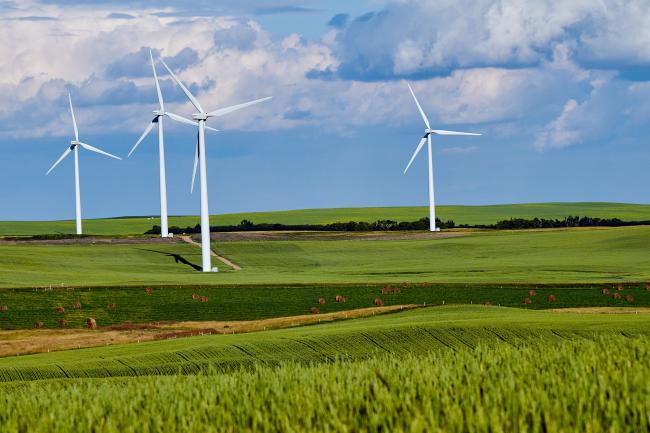The Seventh Session of the Africa Regional Forum on Sustainable Development (ARFSD-7) opened on Monday under the theme, “Building forward better: towards a resilient and green Africa to achieve the 2030 Agenda for Sustainable Development and the African Union’s Agenda 2063.” A key issue addressed on the opening day was how to “build forward better from COVID-19,” with speakers highlighting such issues as financing and investment, access to new technology, and the risks posed by climate change.
Forum participants attended the meeting both in person in Brazzaville, Republic of Congo and online. Monday’s programme included both plenary sessions and side events. For side events coverage, visit this page.
Organizational Matters: Paul Mavima, Minister of Public Service, Labour and Social Welfare, Zimbabwe, and Outgoing ARFSD-6 Bureau Chair presided over the election of the ARFSD-7 Bureau. The Forum approved the election of the Republic of Congo as Bureau Chair; Kenya, Niger and Algeria as First, Second and Third Vice-Chairs; and Zimbabwe as Rapporteur. Countries from the East Africa region continued consultations for the First Vice-Chair. Arlette Soudan-Nonault, Minister of Tourism and Environment, Republic of Congo, took on the role of meeting Chair and introduced the agenda and draft programme of work for the session, which were adopted.
High-Level Panel: A high-level panel on “transformative actions and investments to build forward better from COVID-19 crisis towards a resilient and green Africa” convened during the afternoon. Panelists discussed innovative and transformative actions, and workable solutions that will contribute to efforts to build forward better from the COVID-19 crisis.
In their interventions, panelists highlighted the need to cap illegal logging and deforestation in Africa, as these operations are responsible for the majority of illicit financial flows on the continent. They also stressed the need for mobilising public and private capital for green growth, and for investing in technology and innovation. They stressed the need to make use of the African Continental Free Trade Area, which presents an opportunity for development through regional trade. Panelists further drew attention to the need to restructure external debts to provide the required space to invest in COVID-19 recovery, employment creation, and social protection.
Panelists also drew attention to the Congo Basin Blue Fund, an initiative designed to reduce pressure to exploit the forests of the Congo Basin and thus mitigate the impact of global warming by promoting alternative economic development using the resources of the Congo River and its tributaries, as an important tool requiring funding.
In addition, panelists highlighted the impact of COVID-19 on health services targeting women, and the escalation of teenage pregnancies, increased risk of female genital mutilation and early marriage due to the pandemic. They underscored the need for climate resilient health systems and the need for investments in the health sector. This they said should include integrated digital innovations such as e-health and e-pharma services, improved tax collection capacity, and mobilization of domestic financial resources.
The African Union and the UNECA were called on to intensify efforts to ensure that countries are aware of opportunities and are able to design programmes to access financial resources.







